How A Unique Gap Year Experience Started Feeling Like Home

Three Camphill Volunteers' Stories of a Camphill Welcome and Settling Into Lifesharing
Lifesharing is a unique, beautiful, and meaningful way of living in community, and it is at the core of how Camphill operates. Before joining the Camphill community, though, not many people have heard of lifesharing, and it can take a bit of getting used to.
With sharing at the core of the practice, Camphill provides a warm welcome for new coworkers. As the community comes together to help them acclimate to their new environment, responsibilities, and schedule, new coworkers often find that it doesn’t take long to start feeling at home.
These two coworkers, each at a different stage in their Camphill journey, share their experiences and memories from the start of their time at Camphill. Read along for the story of how Gabi, and Nicolo, went from being strangers to feeling at home at Camphill.
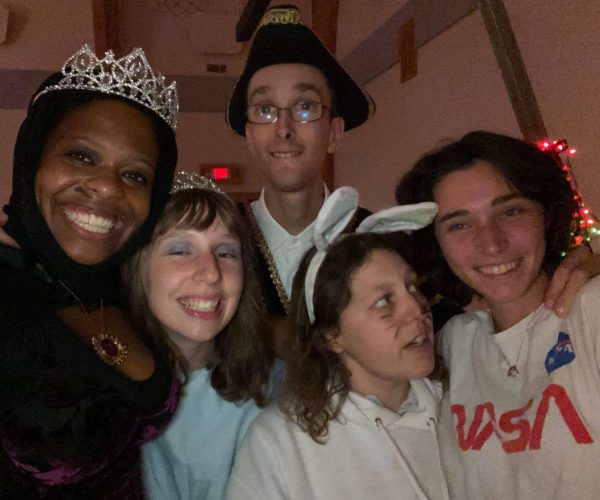
Meet the Coworkers
Gabi Branche came to Triform Camphill Community in Fall 2021 for a gap year after graduating from New York University’s Abu Dhabi campus. She plans to stay a second year while she applies to graduate school.
Nicolo Betoni volunteered at Camphill Village Minnesota for a year (2020-2021) after graduating from the University of Southern California before heading to medical school at University of California, Irvine.
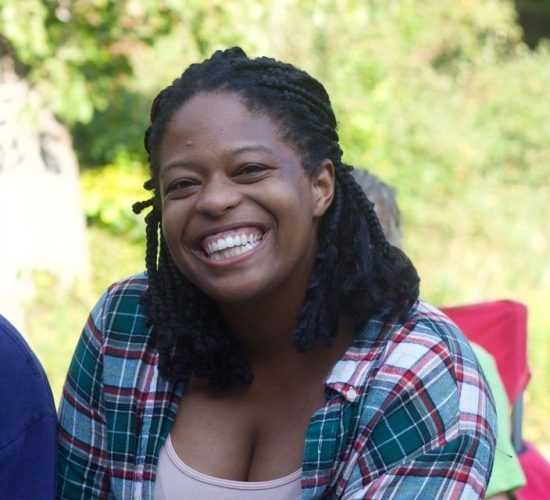

What did it feel like to arrive at Camphill?
Gabi: It was overwhelming. When I first arrived, everyone knew who I was. There was so much love and people saying ‘Yay! We got a new coworker! Hi Gabi!’ I was still learning names, but everyone knew my name, and it was a sense of welcoming and non-judgement. I didn’t think that would be the case, so that was different than what I expected in the best way possible. Also, for the first month I was freaking out about the most menial things like eating meatloaf and seeing chipmunks in real life, which I’d never done before.
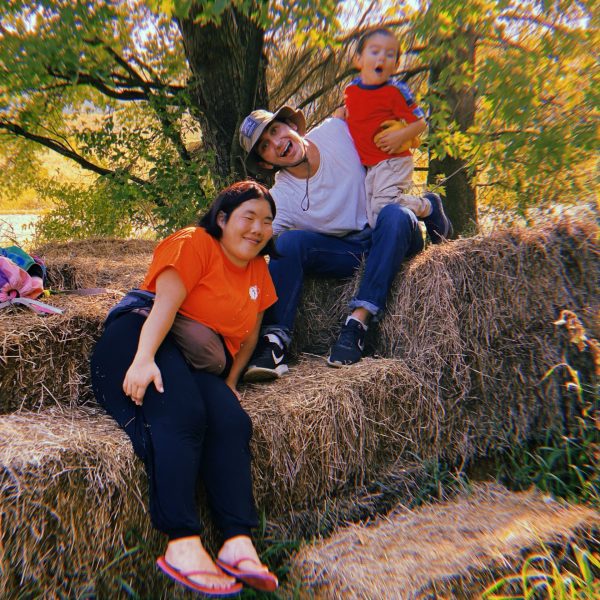
Nicolo: When I watched the [promotional] video, I could feel the appreciation and connection that the people in the village had with each other, and you could tell that they enjoyed being there. But I was still slightly skeptical. [I wondered] is this just good videoing or do they actually enjoy being there that much? Is it as beautiful as it seems? All of that lived up to my expectations. The people were so friendly and welcoming to me. I felt so welcomed by the people when I moved into the house. The coworkers I lived with were around my age, and I felt immediately welcomed and appreciated there. And the farmland was so beautiful. It was so gorgeous.
What was a special moment that made you feel at home at Camphill?
Gabi: It’ll be when you’re just washing dishes or something that the residents share their love and value for you. It really helps to feel like ‘wow, I mean something for the community.’ One of my favorite moments was when I was talking to a resident named Sarah while we were cleaning. I was just rambling about grad school and what I’m thinking about applying to. And she said “Gabi! I’m proud of you!” And I felt like I was going to cry. I’ve never heard her say something like it before or after, so moments like that make it really special.
Nicolo: I didn’t really know how the adults with disabilities would be receptive to me moving in. One of the adults really values structure and order, so I was worried about me coming in and disrupting the flow as a new addition. This one night in the first couple of weeks, Matthew needed help with something in his room. He knocked on the house leader’s door and asked ‘can Nicolo help me tie my blanket,’ and when the house leader said ‘Nicolo is in his room, but I can help,’ he responded ‘No, I want Nicolo.’ I just remember feeling so at home in that instance because I felt welcomed and I felt like he connected with me. I talked about it with Seamus, the house leader, later on, and he said that it was a really big move because it can be hard for Matthew to warm up to people, ‘so him wanting you shows that he appreciates you.’ So that was a milestone for me when I felt at peace, and it was very rewarding to know that someone appreciated me.
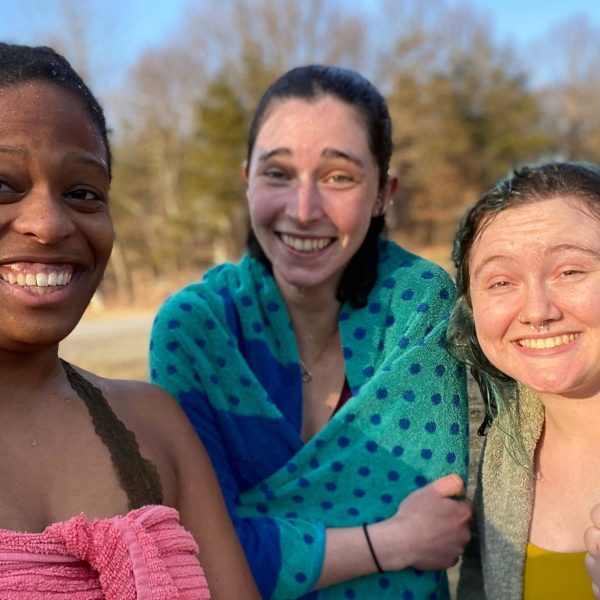
What was challenging about getting used to life at Camphill?
Gabi: The most difficult part was that there’s a lot you need to take in when you arrive. You’re meeting people, but you’re also learning a new schedule and way of life and how the community works. Most of the residents were very direct about their needs and what my role is in those needs, so it was quick to learn. I might be worried about if I’m making breakfast correctly, but I don’t have to be because they’ll tell me.
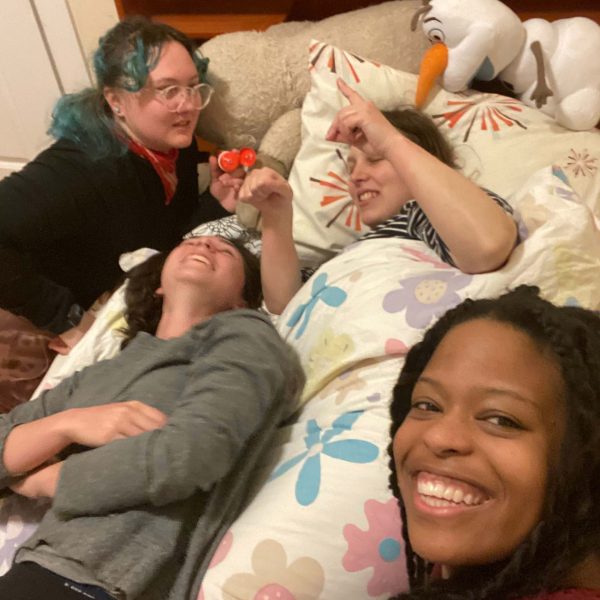
Nicolo: One of the harder parts was coming straight from college where I was my own free spirit. You really only have to care for yourself. I was an RA for three years, so I sort of looked over other people, but at the end of the day, I was my own responsibility. I think the hardest part was adjusting to that community setting and realizing that there are other people who truly depended on me. Whether it’s cooking a meal, or attending workshops, or just caring for others, I had people that I was working with that relied on my services. It was a bit of an adjustment.
What have you learned from your time at Camphill?
Gabi: I was a bit intimidated coming on due to ignorance more than anything having not worked with people with disabilities before. I wasn’t sure how I would be received or if it would be a very strict set of protocol. I learned that it’s a lot more fluid and that it’s a very open and loving community, especially with the residents in a way that I was pleasantly surprised by.
Nicolo: I learned how much of an extended family Camphill ends up being. The good and that bad included. It was 50 people all living together. Of course you’re going to have some tension, but that’s all a part of the family. It was overall such a positive experience. Everyone supports each other. Some days were more difficult than others, but at the end of the day, I knew we’d be there for each other and everyone would support each other. I think the biggest surprise was so many groups of people– people that have lived there for forty years and people who were coming in fresh. We have adults with disabilities who have lived there for a year or forty years and volunteers who have traveled to multiple Camphills and all of these different subgroups coming together. There were so many unique characters and amazing personalities all combined. I think that was the beautiful part: everyone coming together in a family unit and making it work.
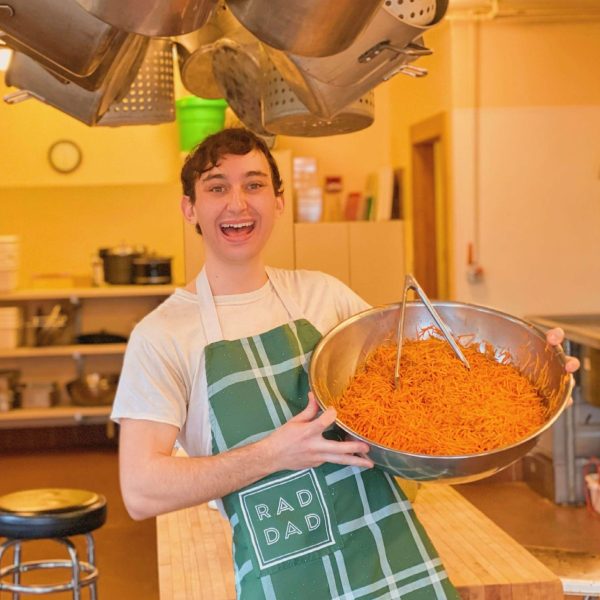
What was a moment when you felt really proud of yourself while getting used to life at Camphill?
Gabi: Because this is a fairly old community, there’s a lot less making the community and more integrating into the community. In the past two months or so it’s shifted to this feeling that this is my community. I care about this community and therefore want to have an impact on how the community continues. I feel empowered to take more responsibility or vocalize needs.
Nicolo: The first time where I actually had to cook for people. I remember in the beginning I was nervous about having to cook for six to ten people [in my house] and forty plus people [in the village]. I had no cooking experience, and with all of those organic ingredients [from the farm] people were expecting good things and I had a lot of dietary restrictions in my house, so I remember spending hours thinking about it. It was a little bit challenging at first, but the community was so supportive. The very first meal, they ended up really liking it. The second meal I made was really spicy, so I learned my lesson there, but after that I got into the routine of it and they were supportive. Every time I cooked it was like an episode of Chopped. I would go down to the garden and see what was available. Anytime I was able to pull off something creative and also good and also have the people in my house say “oh this is really good,” I felt so successful.
What advice would you give to someone about to begin their Camphill journey?
Gabi: Give people a chance, especially other coworkers. In the beginning I missed my college friends, and I felt like ‘I already have friends,’ but giving people a chance to just be themselves and grow on you isn’t betraying the people you love from before but being open to new people in your life. Just do what you’re doing and if it feels wrong, you’ll learn from it.
Nicolo: My advice would be to just go in completely open to this new experience. You’ve never experienced anything like this before, and it’s going to be a completely new experience in so many ways. It’s probably going to be really challenging for you because it’s going to push a lot of your comfort zones, and you’re going to learn so much that you could never learn in a school setting. You’re going to learn a lot of the skills that you need for life. There’s going to be a lot of learning in this year, so take advantage of it. It’s going to be challenging at times, and you’re probably going to get burned out in some ways, but you’re going to find this probably the most rewarding year of your life thus far. Just really enjoy everything it has to offer, all of the beauty and the challenges, and know that you’re going to walk out of it having made an impact, and it will impact you in a similar manner moving forward.
Learn more about the Camphill volunteer experience here and view open positions here.